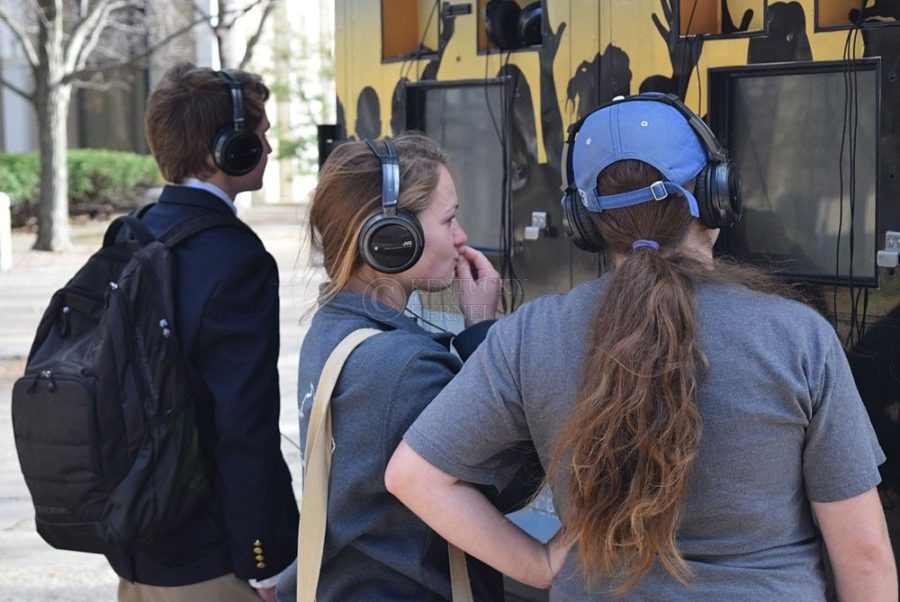Students receive a dollar to watch video about American meat industry
Freshman Equine Science and Management major Samantha Adams (right) and freshman Agricultural Bio Technology major Emma Brennan watch the video together on Monday, November 24, 2014 in Lexington, Ky. Photo by Hunter Mitchell
November 25, 2014
By Cheyene Miller
Students received one dollar from the Farm Animal Rights Movement to sit through a four-minute video that showcased graphic footage of the American meat industry Monday.
FARM’s 10 Billion Lives tour set up their computer screen-lined truck in the Kirwan and Blanding Complex between 9:30 a.m. and 3:30 p.m. for its first of two days on UK’s campus.
The video, a compilation of footage collected from investigative journalists, illuminates legal practices in the meat industry, according to FARM activist and tour operator Angie Fitzgerald.
“We think that this is very important education, but we recognize that time is money in this country and that you all are pretty busy on college campuses, so it’s an incentive,” said Fitzgerald, who noted that the video can be difficult to watch because of its graphic nature. “It’s an incentive to get through the whole video so you can get to the point at the end where we talk about solutions to some of these problems.”
Fitzgerald said that the main purpose of the video was to educate. At the end of the video, the computer screen asks if the students are willing to commit to lowering their meat consumption.
“I would love to see a vegan world, but I recognize that I didn’t go vegan overnight,” Fitzgerald said. “So getting people started on their path to healthier and compassionate eating is a positive thing.”
Fitzgerald said that FARM was founded by Alex Hershaft, a holocaust survivor who saw similarities in the treatment animals receive in the meat industry and the treatment of concentration camp inhabitants.
Images from the video included chickens having their beaks cut off without pain killers and throats slit while still conscious, as well as pigs castrated without anesthesia.
The 10 Billion Lives tour started in Minnesota and made its way through the Midwest. Fitzgerald said that the tour had already been to Northern Kentucky University and the University of Louisville. Autumn Murphy, founder of the Lexington Initiative for Vegan Education, invited them to UK.
“Most student don’t really see this kind of footage in their everyday lives,” said Murphy, an English and history senior.
She said the main purpose of the tour was “to show people what the industry standards are.”
Undecided freshman Caroline Hecht said the video was “really disturbing” and “kind of makes you feel nauseous.”
Hecht has been a vegetarian for three years and said she is considering becoming vegan.



























































































































































